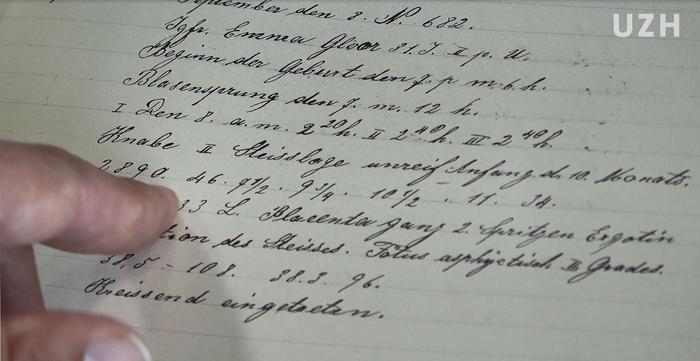In the wake of the 1918/1919 “Spanish flu” influenza pandemic, the probability of low birth weight and stillbirth increased among women in Switzerland, according to a new study published this week in the open-access journal PLOS ONE Kaspar Staub of the University of Zurich, Switzerland, and colleagues.

Credit: MELS, University of Zurich, CC-BY 4.0 (https://creativecommons.org/licenses/by/4.0/)
In the wake of the 1918/1919 “Spanish flu” influenza pandemic, the probability of low birth weight and stillbirth increased among women in Switzerland, according to a new study published this week in the open-access journal PLOS ONE Kaspar Staub of the University of Zurich, Switzerland, and colleagues.
Impaired neonatal health is an ongoing public health concern worldwide. Understanding determinants that impede normal fetal and infant development and growth is crucial for ameliorating neonatal health overall. In the new study, the researchers analyzed data on mothers and neonates from the Bern Maternity Hospital from 1880 to 1900 and from 1914-1922.
Overall, the rate of preterm births and stillbirths decreased between the first dataset and the second. However, the study found that the incidence of low birth weight was significantly increased in 1918 (OR 1.49, 95%CI 1.00-2.23) and in 1919 (OR 1.55, 95%CI 1.02-2.36), the years coinciding with the “Spanish flu”. Additionally, mothers heavily exposed to the influenza pandemic during pregnancy—based on the dates of their pregnancy and infection rates at the time—had a higher risk of stillbirth (OR 2.27, 95%CI 1.32-3.90). The data on influenza infection during pregnancy were too imprecise in the dataset to be conclusive at the individual level.
The authors conclude that factors influencing neonatal health are multifactorial, but there is likely some consistency across pandemics, with similar patterns of increased stillbirth and low birth weight seen for pregnancies exposed to both the 1918 pandemic and COVID-19.
The authors add: “Pandemics are increasingly reported to negatively influence pregnancy outcomes. Our study is another example showing that the greatest pandemic of the last century was associated with higher risks of stillbirths and low birthweight. This urges us to better prepare for future pandemics to mitigate their effects on maternal and neonatal health.”
#####
In your coverage please use this URL to provide access to the freely available article in PLOS ONE: https://journals.plos.org/plosone/article?id=10.1371/journal.pone.0289157
Citation: Salvisberg V, Le Vu M, Floris J, Matthes KL, Staub K (2023) Health of neonates born in the maternity hospital in Bern, Switzerland, 1880–1900 and 1914–1922. PLoS ONE 18(8): e0289157. https://doi.org/10.1371/journal.pone.0289157
Author Countries: Switzerland
Funding: The authors thank the Swiss National Science Foundation (SNSF, project numbers 156683 & 197305, Grantee Kaspar Staub) as well as the Mäxi Foundation, Zurich (Grantee Frank Rühli), for providing funding The funders had no role in study design, data collection and analysis, decision to publish, or preparation of the manuscript.
Journal
PLoS ONE
DOI
10.1371/journal.pone.0289157
Method of Research
Observational study
Subject of Research
People
Article Title
Health of neonates born in the maternity hospital in Bern, Switzerland, 1880–1900 and 1914–1922
Article Publication Date
16-Aug-2023
COI Statement
The authors have declared that no competing interests exist.




